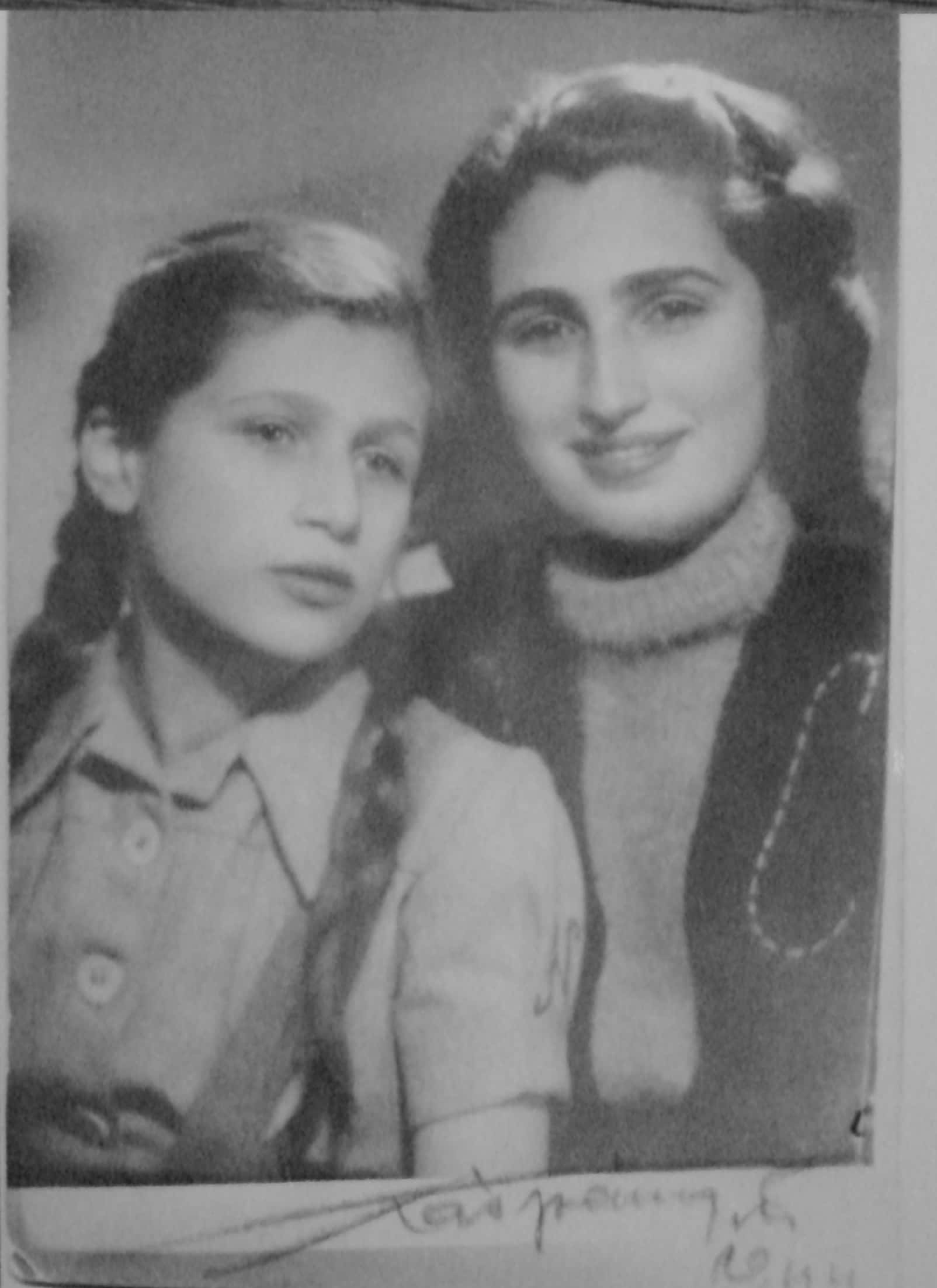Eva Turcu, née Markovits
born in 1926 in Oradea (Romania) - 24.11.2009
Professor for Chemistry at the University of Bucharest
Auschwitz: 1. June 1944 Ravensbrück: 16. August 1944

Eva Turcu with her younger sister, Photo privat
Eva Turcu had a character just as exceptional as her life: those close to her remember her honesty (she could not lie even when one would have deemed it necessary), her courage and her dignity ... she said things frankly, but, at the same time, in a delicate way… she was firm and strong. She willingly made sacrifices for others throughout her entire life. Eva never lacked an intelligent and refined sense of humour either. Her discretion was proverbial, any secret confided to her was well kept. Above all, she was optimistic: she looked to the future and tried not to let herself be overwhelmed by painful memories.
Eva Markovits was born in November 1926 in Oradea (Nagyvárad), in north-west Romania, to a wonderful family of intellectuals highly regarded in the city. Four years later, her younger sister was born. They were Jews of Hungarian culture. The father was a lawyer and the mother, a pharmacist. They were not wealthy, but the children received a full education, according to the standards of the time, and practiced many sports. Eva often mentioned how harmonious the atmosphere in her family was.
In 1940, part of Romania was ceded to Hungary. The Markovits family lived on the ceded territory. The Horthysts brutally repressed the Romanians (there are martyred villages in Romania) and one anti-Semitic law followed another quickly. In 1941, Eva’s father was forbidden to profess. In schools, the policy of numerus clausus was introduced, and in universities, that of numerus nullus. In 1942 the first Jews who were not born on traditional Hungarian territory were deported. Afterwards, the obligation to wear the yellow star, restrictions on public transport in the city, etc. were introduced. In April 1944 the ghettoization began.
At the end of May, the deportation to Auschwitz, by "death trains". Eva and her family arrived at the camp on June 1, 1944. The same day, Eva's younger sister was selected for the gassing chamber. Their mother accompanied her.
After losing her mother and sister, Eva remained in Auschwitz until August, when she was transferred to Ravensbruck.
Then, in September, she was sent to Altenburg (Thuringia) to do forced labour in a factory. In April 1945, the front was approaching and the prisoners were evacuated to the town of Waldenburg. Here they were released by American troops.
For a few weeks, Eva lived in Meerane and then, with other former prisoners, she arrived in Buchenwald. From this main concentration camp, she left for Romania on a transport of ex-prisoners.
In her hometown she learned that her father had died a few days before the liberation of Auschwitz by Soviet troops. At home Eva found nothing of her family's property because everything had been looted or devastated. She was weak and had to sell the family’s old apartment for a very modest price, because she urgently needed money to recover and take the baccalaureate exam.
She went to the University of Cluj (the largest university centre in Transylvania) where she studied Chemistry. There she met her future husband, a student of Romanian origin.
Upon graduation the young couple moved to Bucharest. They had two daughters. They lived through the rigors of the Communist regime, but they have always remained very dedicated to their research and university teaching activities.
Eva did not tell her children or grandchildren much about her life in the camps. What is known is, that this 17-year-old girl put herself through great risks for the sake of maintaining her dignity in extraordinary circumstances and that she frequently gave her bread ration in exchange for soap - cleanliness has always been very important to her.
After the horrors of war, it was equally important to her to educate her daughters in a spirit of tolerance and no prejudice. And even if Romania was not a rich country, together with her husband she made sure that the children lacked nothing essential: culture, health, femininity, friends, good food and good taste.
Those who knew her thank her for everything.
Written by her daughter Lucia Spulber in 2020